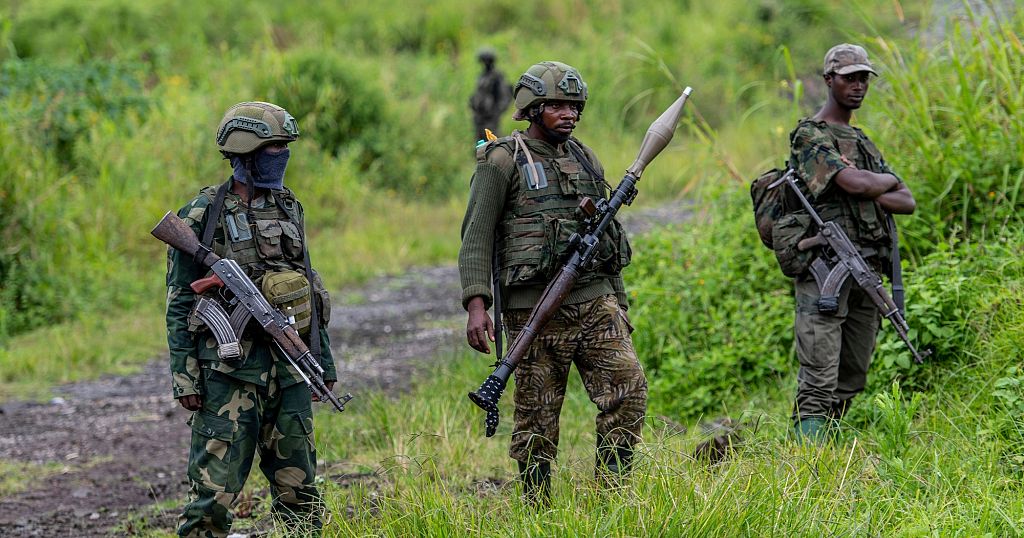The M23 rebel group, which holds significant territory in eastern Democratic Republic of Congo (DRC), has warned it may withdraw from peace negotiations unless the government accelerates the release of prisoners—a key demand threatening to derail diplomatic efforts. The ultimatum comes as fighting intensifies in conflict-ridden North and South Kivu provinces, casting doubt on the viability of a ceasefire brokered earlier this month.
Benjamin Mbonimpa, the M23’s permanent secretary and lead negotiator, struck a defiant tone during a press briefing on Friday, stressing that the group will not proceed with talks scheduled for 8 August in Doha unless Kinshasa adheres to a prisoner-release clause outlined in the Declaration of Principles. Signed by both parties under Qatari mediation, the declaration serves as a roadmap for finalizing a peace agreement by 18 August. “What will we do in Doha if our prisoners are not yet released?” Mbonimpa asked, citing the document’s requirement that this step must precede further discussions.
The agreement initially facilitated a temporary truce, but accusations of violations by both sides saw hostilities resume swiftly. Clashes between M23 fighters and Wazalendo militias—community-based forces aligned with the Congolese army—have escalated, displacing thousands and deepening insecurity. Mbonimpa accused Kinshasa of deploying proxy groups to attack rebel positions, vowing a defensive stance. “If the Wazalendo attack us, we will observe and declare that it is the Kinshasa government attacking us,” he said.
In Goma, a strategic eastern city under M23 control since January, residents expressed fading optimism. Amani Safari, a local resident, noted little visible progress from the diplomatic efforts: “We’re still waiting for clashes to stop and agreements to be reached.” Bisimwa Alame, another Goma citizen, echoed widespread frustration: “This war is unnecessary and stalls development. We need unity and lasting peace.”
The Doha-mediated negotiations represent a critical juncture for a region plagued by decades of violence. Over 100 armed groups operate in eastern DRC, with M23—a faction reactivated in 2021 after a nine-year dormancy—emerging as one of the most formidable. Its dominance has strained regional relations, with the DRC government repeatedly accusing Rwanda of backing the rebels, a claim Kigali denies.
Analysts warn that the prisoner-release impasse risks prolonging a conflict that has displaced nearly seven million people nationwide. Meanwhile, humanitarian agencies report worsening conditions, with road blockades and active combat hindering aid access.
As diplomatic deadlines approach, stakeholders emphasize the urgency of converting pledges into actionable terms. “This round of talks must shift from fragile promises to concrete steps,” said a source close to the mediation process. For war-weary civilians, the stakes transcend politics. “We’ve heard many agreements before,” said Safari. “Now we need proof that peace is possible.”
